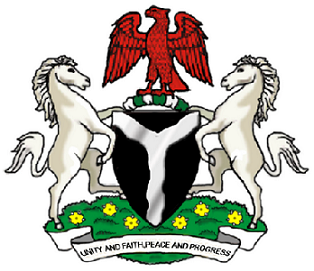
By Sanya Adejokun
There was a thick cloud over the meeting of the Federation Account Allocation Committee (FFAC) meeting held on October 22 to distribute accruals for the month of September 2014.
While a figure of N603 billion was announced to have been shared, documents in the possession of Economic Confidential suggests that N701.5 billion was actually distributed among the beneficiaries of the account including payments to joint venture company (JVC) and excess crude accounts, Federal Inland Revenue Service (FIRS) and Nigeria Customs Service (NCS).
Finance commissioners from the states were in a sharp disagreement with representatives of the Federal Government (Minister of State for Finance who is FAAC Chairman and Accountant General of the Federation) over the figures presented thus leading to a prolongation of the meeting.
A sore point was how to manage the outstanding debt owed by the Nigeria National Petroleum Corporation (NNPC), to the Federation Account as states insisted on sharing the money while the Federal Government wanted it transferred to savings.
Consequently, the FAAC meeting was forced to break midway to allow the state finance commissioners consult their governors on how to break the impasse.
Accountant General of the Federation, Jonah Otunla attributed decline in available revenue to lower oil prices and production. He also said noted a fall in non-mineral receipts because some prominent companies had paid their taxes the previous month (August).
A breakdown of the distribution showed that N457.12bn was shared from statutory sources compared with N62.498bn from VAT and N35.549bn from SURE-P.
The disagreement prolonged the deliberations till late hours of the night. One of the nagging issues reported to have further created disagreements between members was the outstanding debt owed by the Nigeria National Petroleum Corporation, NNPC, to the Federation Account.
Consequently, the FAAC meeting was forced to break midway to allow the state finance commissioners consult their governors on how to break the impasse.
One of the commissioners confided in our correspondent that the figures presented by the Federal Government were so inadequate, thereby compelling the states to reject the sum and to canvass the sharing of the N2.7bn Excess Crude Account (ECA) savings.
Another source also said that while the commissioners wanted the ECA savings to augment the distributions for September, the Federal Government team was said to have shared a different view.
The Minister of State of Finance, Bashir Yuguda, and other Federal Government officials were said to be more disposed to a no-sharing option based on the view that the country’s savings should be beefed to mitigate any likely fiscal shocks on the economy, following the lingering international oil market uncertainties.
The states’ commissioners were said to be completely opposed to moving the amount into ECA saving, claiming that their governments needed more funds now to sustain various projects and programmes targeted at improving essential services.
Exclusive documents in possession of this magazine show that N668,825,130,305.30 was distributed from statutory (oil and gas, taxes and customs) and value added tax (VAT) sources; N2,769,332,390.01 came from foreign excess crude savings account; while the N30,000,650,000.00 was additionally sourced from Nigerian National Petroleum Corporation (NNPC).
It may be safe to say that there is currently no legal basis upon which the federation account is shared. The Constitution recognised federal, states and local governments as the only beneficiaries of the federation account and upon this basis, a Presidential Order of 2002, which was amended in 2004 provided that the federal government will take 52%, states, 26.72%, and local governments 20.60%. Over the years however, and with the inability to of the National Assembly to legislate on new Formula, which the Constitution says must be amended after every five years, confusion had set in. Now, joint venture oil business, Federal Inland Revenue Service, Nigerian Customs Service and excess crude oil account have all become direct beneficiaries of the federation account without any laws authorising such.
During the month, federal government got N233, 446,570,521.66. Akwa Ibom, with the highest number of oil wells topped the table of allocations for states and local government earning a total of N22,049,121,838.48, million followed by Delta and Rivers states with N16,994,839,518.49 million and N16,148,778,300.16 million. Lagos State with N14,288,006,057.72 million was number four on the table while Kano ( 44 local governments) and Bayelsa with (a littoral state with eight local governments) got N12,381,998,690.07 and N10,030,727,314.57 to make up states with N10 billion and above allocation).
On the opposite side of the table were states like Gombe which brought up the rear with N4,218,363,864.47; Ebonyi at number 35 with N4597,815,980.09, Ekiti with N4,808,496,995.11, solid minerals rich but non-exploiting Nassarawa State was at number 33 with N5,253,058,399.89, Kwara with N5,445,481,721.15 and Osun making up the last six states at number 31 with allocation of N5,776,256,070.76 for the state and its 30 local government councils.
